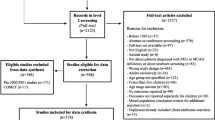Abstract
Summary: Analysis of outcome data from 305 of the 414 offspring from the Maternal Phenylketonuria Collaborative Study (MPKUCS), plus 70 control offspring, revealed significant deficits in the IQ (intelligence quotient), as measured by the Wechsler Intelligence Scale for Children - Revised (WISC-R), when maternal metabolic control during pregnancy was delayed and/or inadequate. There were, however, 23 'outliers' (7.5% of the 305) in which the offspring's intellectual IQ was worse (n=10) or better (n=13) than expected. The aim of this study was to determine whether collection parameters were incomplete or whether these subjects were true biological variants influenced by other undetected factors or, perhaps, by modifier genes. Among the 10 offspring whose intellectual functioning was worse than expected, additional complications were uncovered that could explain the poor outcome. Four of the 13 offspring with higher than expected IQ had mothers with mild variants of PKU in which the insult to the fetus would not be expected to be as profound. For the other nine offspring whose intellectual performance was better than expected, there was no explanation, based on the parameters studied. We hypothesize that modifier genes will, at times, protect the fetus despite high maternal concentrations of phenylalanine. Not all offspring from the same (untreated) PKU mother may be similarly affected. Finding the source of these modifiers might effect the treatment of MPKU.
Similar content being viewed by others
REFERENCES
Angel E, Denman AR, Harris R,et al (1974) Maternal phenylketonur a:a family with seven mentally retarded s blings.Dev Med Child Neurol 16:800-807.
Caldwell BM, Bradley RH.(1984) Home Observation for Measurement of the Environment. Little Rock: University of Arkansas,College of Education,Center for Child Development and Education.
Clarren SK, Smith DW (1978) The fetal alcohol syndrome.N Engl J Med 298:1063-1067.
Drogari E, Beasly M, Smith I,et al (1987) Timing of strict diet in relation to fetal damage n maternal phenylketonuria.Lancet ii:927-930.
Frankenburg WK, Duncan BR, Coffelt W,et al (1968) Maternal phenylketonuria:mplications for growth and development.J Pediatr 73:560-570.
Hard ML, Raha S, Spino M,et al (2001) Impairment of pyruvate dehydrogenase activity by acetaldehyde.Alcohol 25:1-8.
Heaton MB, Moore DB, Paiva M,et al (1999) Bcl-2 overexpression protects the neonatal cerebellum from ethanol neurotoxicity.Brain Res 817:13-18.
Hollingshead AB (1957) Two Factor Index of Social Position. Department of Sociology,Yale University,PO Box 1965,Yale Station,New Haven,CT,06520-1965,USA.
Howell RR, Stevenson RE (1971) The offspring of phenylketonuric women.Soc Biol 18: S19-S29.
Hsia DY-Y (1970) Phenylketonur a and its variants.Prog Med Genet 7:29-68.
Jervis GA (1954) Phenylpyruvic oligophrenia (phenylketonuria).Assoc Res Nerv Dis Proc 33: 259-282.
Koch R, Blaskovics M (1982) Four cases of hyperphenylalaninemia:studies dur ng pregnancy of the offspring produced.J Inherit Metab Dis 5:11-15.
Koch R, Hanley W, Levy HL,et al (2003) The Maternal Phenylketonuria International Study: 1984-2002.Pediatrics 112:1523-1529.
Lenke R, Levy HL (1980) Maternal phenylketonuria and hyperphenylalaninemia:an nter-national survey of the outcome of untreated and treated pregnancies.N Engl J Med 303: 1202-1208.
Levy HL, Ghavam M (1996) Maternal phenylketonuria:a metabolic teratogen.Teratology 53:176-184.
Levy HL, Waisbren SE (1983) Effects of untreated maternal phenylketonuria and hyperphenylalaninemia on the fetus.N Engl J Med 309:1269-1274.
Levy HL, Lobbregt D, Sansaric QC,et al (1992) Comparison of phenylketonuric and nonphenylketonuric sibs from untreated pregnancies n a mother with phenylketonuria. Am J Med Genet 44:439-442.
Levy HL, Goss B, Sullivan DK,et al (1994a) Maternal mild hyperphenylalaninemia:result of treated and untreated pregnancies in two sisters.J Pediatr 125:467-469.
Levy HL, Waisbren SE, Lobbregt D,et al (1994b) Maternal mild hyperphenylalaninemia:an international survey of oüspring outcome.Lancet 344:1589-1593.
Levy HL, Waisbren SE, Guttler F,et al (2003) Pregnancy experiences in the woman with mild hyperphenylalaninemia.Pediatrics 112:1548-1552.
Lipson A, Beuhler B, Bartley J,et al (1984) Maternal hyperphenylalaninemia fetal effects. J Pediatr 104:216-220.
Mabry CC, Denniston JC, Coldwell JG (1996) Mental retardation in children of phenylketonuric monthers.N Engl J Med 275:1331-1336.
McCarver DG (2001) ADH2 and CYP2E1 genetic polymorphism:risk factors for alcohol related birth defects.Drug Metab Dispos 29:562-565.
McCarver DG, Thomasson HR, Martier SS,et al (1997) Alcohol dehydrogenase-2*3 allele protects against alcohol-related birth defects among African Americans.J Pharmacol Exp Ther 283:1095-1101.
Michals-Matalon K, Acosta PB, Austin V,et al (1996) Nutrition and reproductive outcome in maternal phenylketonuria.Eur J Pediatr 155 (supplement 1):S165-168.
Partington MW (1962) Variations in intelligence in phenylketonuria.Can Med Assoc J 86: 736-743.
Perry TL, Hansen S, Tischler B,et al (1973) Unrecognized adult phenylketonuria:implications for obstetrics and psychiatry.N Engl J Med 289:395-398.
Pitt D, Gooch J (1974) The problem of maternal phenylketonuria.Aust Paediatr J 10: 337-342.
Robinson BH, MacMillan H, Petrova-Benedict R,et al (1987) Variable clinical presentation in patients with defective E1 component of pyruvate dehydrogenase complex.J Pediatr 111:525-533.
Rouse B, Azen C, Friedman E,et al (1997) Maternal Phenylketonuria Collaborative Study offspring:facial dysmorphology,major and minor malformations.Am J Med Genet 69: 89-95.
Scriver CR (1989) The salience of Garrod 's 'molecular groupings 'and 'inborn factors in disease'.J Inherit Metab Dis 12 (supplement 1):9-24.
Viljoen DL, Carr LG, Foround TM,et al (2001) Alcohol dehydrogenase-2*2 allele is associated with decreased prevalence of fetal alcohol syndrome in the mixed ancestry population of the Western Cape Province,South Africa.Alcohol Clin Exp Res 25:1719-1722.
Widaman KF, Azen CG (2003) Relation of prenatal phenylalanine exposure to infant and childhood cognitive outcomes:results from the International Maternal PKU Collaborative Study.Pediatrics 112:1537-1543.
Woolf LI, Omstead C, Lee D,et al (1961) Atypical phenylketonuria in two sisters with normal offspring.Lancet ii:464-465.
Author information
Authors and Affiliations
Corresponding author
Rights and permissions
About this article
Cite this article
Hanley, W.B., Azen, C., Koch, R. et al. Maternal Phenylketonuria Collaborative Study (MPKUCS)—The 'outliers'. J Inherit Metab Dis 27, 711–723 (2004). https://doi.org/10.1023/B:BOLI.0000045758.86492.54
Issue Date:
DOI: https://doi.org/10.1023/B:BOLI.0000045758.86492.54




